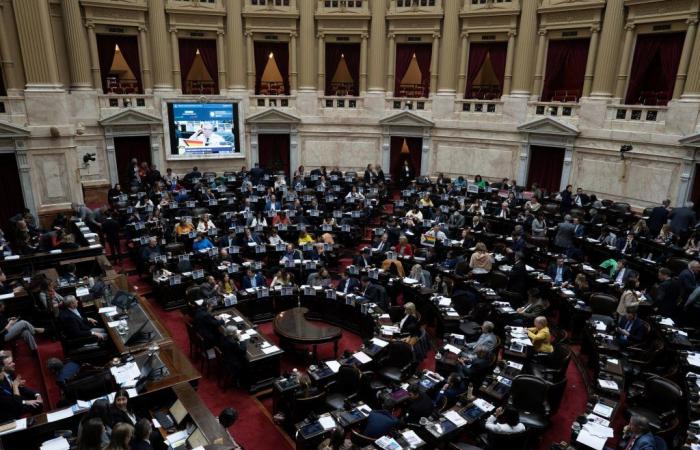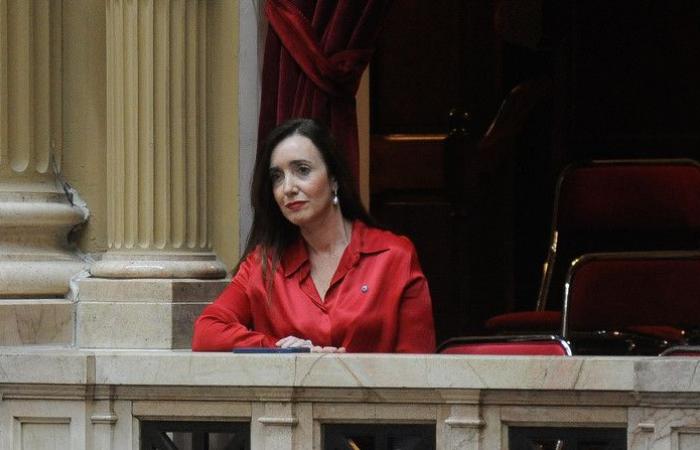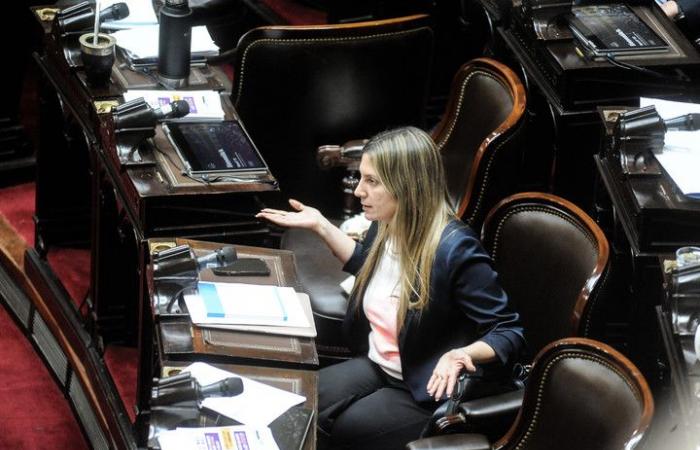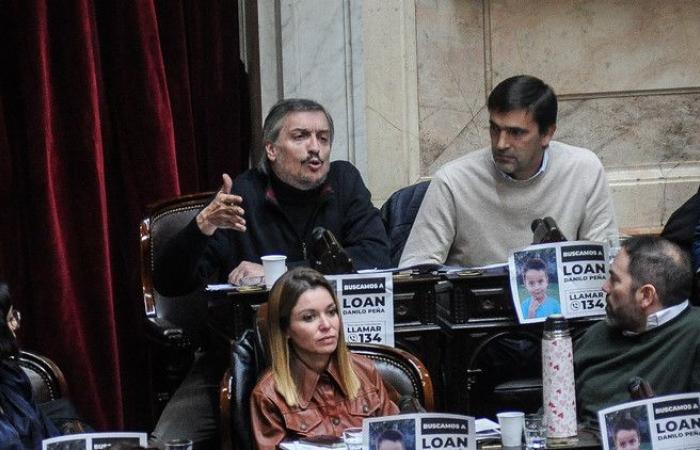The Chamber of Deputies approved the Bases Law and the fiscal package early this Friday morning for the Government to celebrate its first two legislative victories, thus granting the president Javier Milei the norms that he demanded for the signing of the May Pact that he plans to celebrate with the governors on July 9.
The omnibus law obtained 147 votes in favor, as anticipated Clarion, and 107 against. The ruling party had the usual allies of the libertarians, the support of the PRO, led by Cristian Ritondo, and the partial accompaniments of the UCR and We Make the Federal Coalition, the group of Miguel Angel Pichetto. It also added the support of Federal Innovation, the space chaired by Pamela Calletti and made up of representatives from Salta, Misiones and Río Negro.
Meanwhile, for the fiscal package, the Government He did not get the number to replace article 111 linked to the review of tax expenditures, which was rejected with two-thirds of the Senate and in Deputies it did not reach that majority since it added 148 votes in favor and 107 against. At one point in the negotiation there was some optimism among the dialogueists because there were legislators from Unión por la Patria (UxP) who were willing to accompany, but in the block meeting, Kirchnerism shielded itself and prevented leaks in that vote.
Instead, the ruling party had the votes to insist on Personal Property by winning with 134 votes in favor and 118 against, while Monica Frade (LLA), Nicolas Massot and Margarita Stolbizerboth from Hacemos, opted to abstain.
The rest of the bill – including money laundering – with the modifications made in the Upper House was approved with 144 votes in favour, 108 against and 3 abstentions.
Strong support for the reversal of the Income Tax
While the reversal of the tax on The tax on earnings was approved with 136 votes in favor, four more than those obtained in April, and 116 against, which also added three votes, and as speculated, the deputies of the Union for the Fatherland for Catamarca gave their support to the reinstatement of the fourth category.
The attention had been focused on the UxP block, which could suffer some leaks from the approach of Raúl Jalil from Catamarca to the Casa Rosada. But unlike what happened in April, when 3 Catamarca deputies abstained and one voted in favor, this time it was the other way around and 3 voted in favor and Silvana Ginocchio, the governor’s wife, abstained.
The ruling party was able to add 4 more votes compared to the first vote because the 2 representatives of Catamarca were joined by the presence of Alvaro González and Gerardo Milman, both from the PRO, who had missed the first session.
In addition, Peronism was again absent from the votes of Roberto Mirabella and Guillermo Snopek, but was able to count on the vote of Leopoldo Moreau who had missed the session of the preliminary sanction.
Gustavo Sáenz from Salta, the governor of the Frente Renovador, gave his contribution to the laws sent by the Executive and Osvaldo Jaldo from Tucumán had already fractured the Peronist bloc by creating his own space with his three deputies, to support Milei with the Ley Bases and the fiscal package.
Efforts against the clock to approve Profits
For the celebrations, the Chief of Staff went to Congress, Guillermo Francosthe vice president Victoria Villarruel and the Secretary General of the Presidency, Karina Mileiwho made arrangements until the last moment to close the last agreements with the dialoguers and guarantee more than 130 votes for the reversal of the Income Tax in the face of threats of judicialization from sectors of the opposition, not only Kirchnerism.
Parliamentary sources confided to Clarion that the deputy chief of staff, José Rolandi, was trying to secure an absolute majority, half plus one, on Thursday afternoon, which generated discomfort in the UCR and We Make the Federal Coalition because they understood that it was not necessary because a simple majority was enough. because it is not a specific allocation of co-participating taxes.
But the ruling party was concerned because it could be interpreted that because it was a tax issue, 129 votes were needed. For this reason, the The Government also pressured the governors to guarantee the necessary votes. The nerves of the ruling party were not less because the vote count gave them 128 votes due to the absence of allies.
The scenario was worrying just hours before the vote because radicalism, which had contributed 26 votes in the first approval, suffered the loss of three deputies. Karina Banfi and Fabio Quetglas from Buenos Aires along with Roxana Reyes from Santa Cruz decided not to accompany the ruling party in Profits.
They were joined by the absences of Marcela Pagano (LLA), with a medical certificate, Florencio Randazzo, who did not participate in the first part of the session due to personal problems; and Carolina Píparo, who for some time now has deepened her distance from the Government.
But at the edge of the definition, when the closing speeches stage was underway, the Government was able to put the situation in order. Randazzo and Pagano arrived at the venue and there was a political agreement to get Píparo’s vote.
Beyond this difference of interpretation, the Government ensured the approval of the Ley Bases when it accepted the Senate’s modifications, as requested by the dialogue participants, leaving Aerolíneas Argentinas, Correo Argentino and Radio y Televisión Argentina out of the package of companies to be privatized. It also did not insist on the recovery of the pension chapter that eliminated the moratorium and accepted the modifications to the Regime of Incentives for Large Investments (RIGI) such as the adjustment in the powers delegated to the President.
Based on these concessions, the Casa Rosada also gained support to insist on the original half-sanction of the tax package allowing the reincorporation of Profits and Personal Assets that were rejected by the Senate, although in that chamber Kirchnerism did not manage to bring together the two. thirds to prevent Deputies from insisting again.
A debate that went from “historic day” to “helicopter club”
The debate on the laws began with a delay of several hours due to privilege issues and the libertarian Santiago Santurio opened the game by speaking of “a historic day for Argentina” when referring to the possible approval of the Ley Bases, while José Luis Espert defended the constitutionality of insisting on the fiscal package, despite the Senate’s rejection of the reversal of the tax on Income and Personal Property.
On this point, K deputy Vanesa Siley charged, who warned that The principle of bicameralism established in article 44 of the Constitution was not being respected.. “Tax on Income and Personal Assets has not had a vote in one of the chambers, Article 81 is clear when it speaks of a ‘total rejection of a bill’ and is applicable to omnibus laws like the ones we are already dealing with here every law contained within,” he stated.
Silvia Lospennato (PRO) responded immediately, recalling that the Chamber of Deputies has the “privilege of insisting on the original sanction” and lashed out at Kirchnerism for “the disaster they left behind in 20 years” of government. “Gentlemen members of the helicopter club, you have failed again because today there will be a law,” the deputy anticipated.
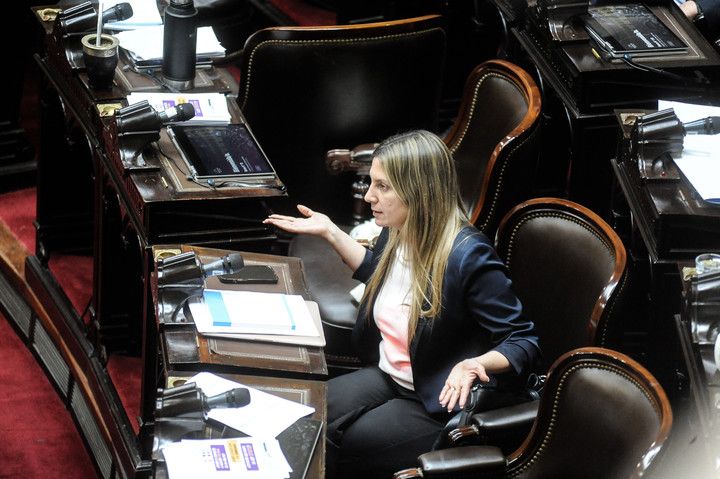 Silvia Lospennato during the debate on the Law on the Bases in the House of Representatives. PHOTO: Federico López Claro.
Silvia Lospennato during the debate on the Law on the Bases in the House of Representatives. PHOTO: Federico López Claro.But later he joined the controversy of the unruly radical Fernando Carbajalwho advised that both Profits and Personal Assets “they are going to be prosecuted.” But he criticised the Government for not obtaining the majority in the Senate to approve the Income and Personal Property Tax by warning that “perhaps embassies were missing”. The reference had to do with the proposal that was made to the senator for Neuquén Lucila Crexell to act as a representative to UNESCO while negotiating its support for the Government’s laws.
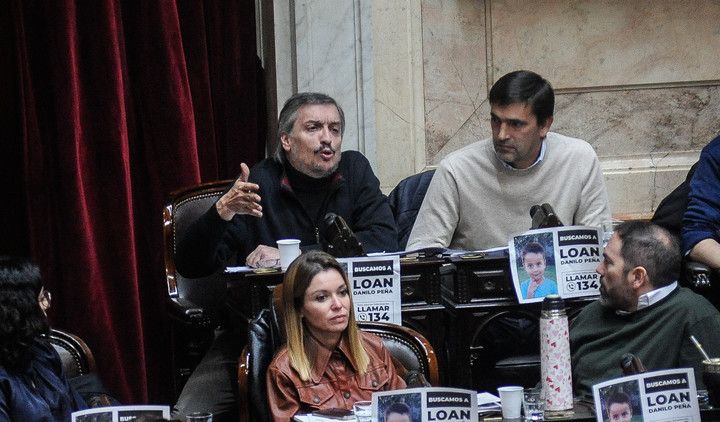 Maximo Kirchner and a strong criticism of the RIGI. PHOTO: Federico López Claro
Maximo Kirchner and a strong criticism of the RIGI. PHOTO: Federico López ClaroMáximo Kirchner also participated in the debate and made a strong attack on the large investment program promoted by Milei, which he compared to the Chilean model of copper exploitation. In this sense, he warned that the program “devastates communities” and stressed that it is “a gross error in time because it greatly exceeds the mandate” because it grants fiscal and tax benefits for 30 years. “If anyone thinks that the RIGI is going to balance the fiscal deficit, it is a lie,” he concluded.
For his part, Miguel Angel Pichetto questioned the behavior of the Senate because -according to his interpretation- “it does not deal with the representation of the provinces” and stressed that what the Chamber of Deputies did with the sanction of the laws reestablished that situation “thinking about the interest of the governors, even those of Unión por la Patria. “We are going to recompose this political-economic fabric of federal co-participation that the Senate did not do,” he concluded.

